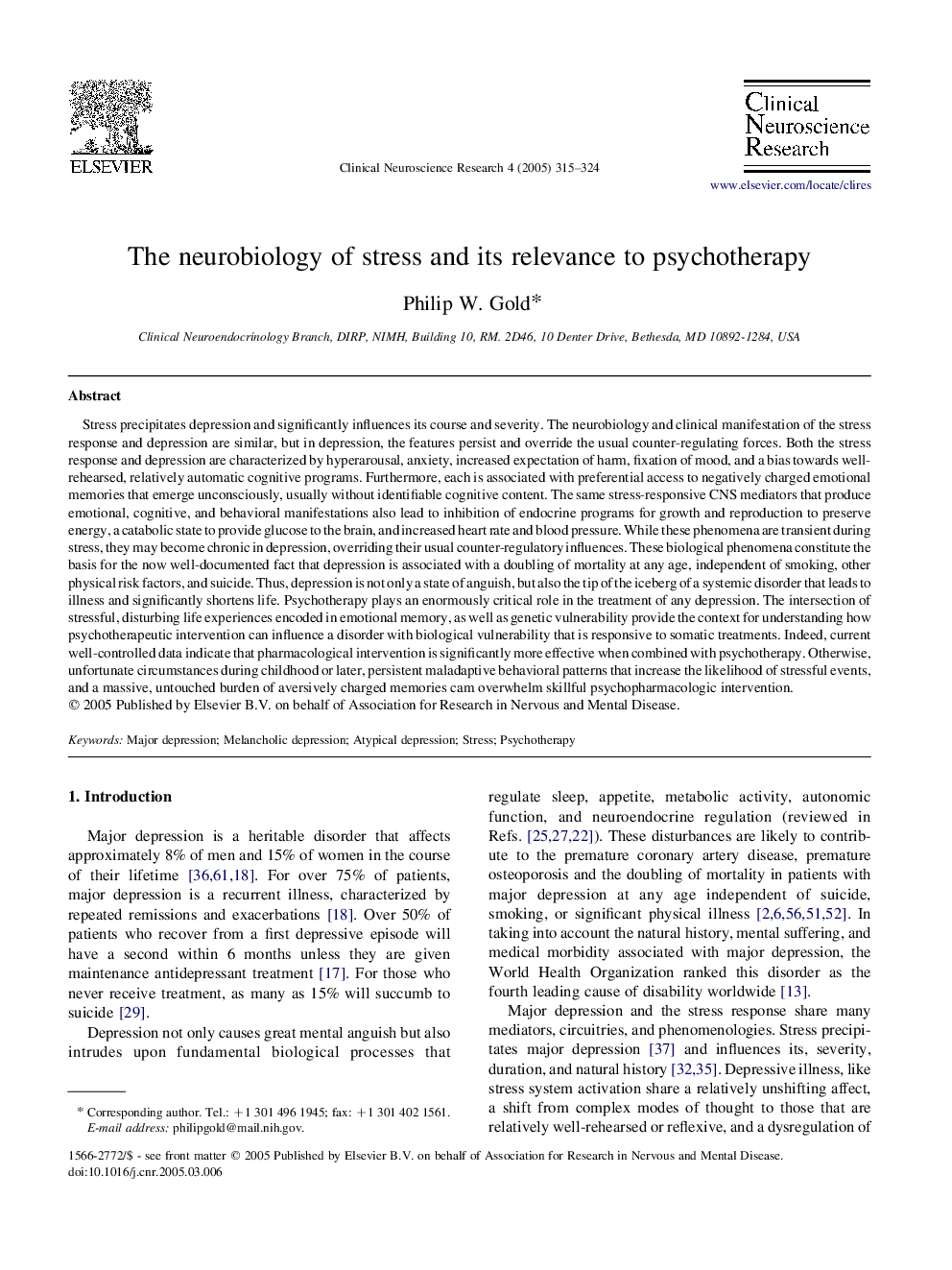| کد مقاله | کد نشریه | سال انتشار | مقاله انگلیسی | نسخه تمام متن |
|---|---|---|---|---|
| 9189909 | 1579731 | 2005 | 10 صفحه PDF | دانلود رایگان |
عنوان انگلیسی مقاله ISI
The neurobiology of stress and its relevance to psychotherapy
دانلود مقاله + سفارش ترجمه
دانلود مقاله ISI انگلیسی
رایگان برای ایرانیان
کلمات کلیدی
موضوعات مرتبط
علوم پزشکی و سلامت
پزشکی و دندانپزشکی
مغز و اعصاب بالینی
پیش نمایش صفحه اول مقاله

چکیده انگلیسی
Stress precipitates depression and significantly influences its course and severity. The neurobiology and clinical manifestation of the stress response and depression are similar, but in depression, the features persist and override the usual counter-regulating forces. Both the stress response and depression are characterized by hyperarousal, anxiety, increased expectation of harm, fixation of mood, and a bias towards well-rehearsed, relatively automatic cognitive programs. Furthermore, each is associated with preferential access to negatively charged emotional memories that emerge unconsciously, usually without identifiable cognitive content. The same stress-responsive CNS mediators that produce emotional, cognitive, and behavioral manifestations also lead to inhibition of endocrine programs for growth and reproduction to preserve energy, a catabolic state to provide glucose to the brain, and increased heart rate and blood pressure. While these phenomena are transient during stress, they may become chronic in depression, overriding their usual counter-regulatory influences. These biological phenomena constitute the basis for the now well-documented fact that depression is associated with a doubling of mortality at any age, independent of smoking, other physical risk factors, and suicide. Thus, depression is not only a state of anguish, but also the tip of the iceberg of a systemic disorder that leads to illness and significantly shortens life. Psychotherapy plays an enormously critical role in the treatment of any depression. The intersection of stressful, disturbing life experiences encoded in emotional memory, as well as genetic vulnerability provide the context for understanding how psychotherapeutic intervention can influence a disorder with biological vulnerability that is responsive to somatic treatments. Indeed, current well-controlled data indicate that pharmacological intervention is significantly more effective when combined with psychotherapy. Otherwise, unfortunate circumstances during childhood or later, persistent maladaptive behavioral patterns that increase the likelihood of stressful events, and a massive, untouched burden of aversively charged memories cam overwhelm skillful psychopharmacologic intervention.
ناشر
Database: Elsevier - ScienceDirect (ساینس دایرکت)
Journal: Clinical Neuroscience Research - Volume 4, Issues 5â6, May 2005, Pages 315-324
Journal: Clinical Neuroscience Research - Volume 4, Issues 5â6, May 2005, Pages 315-324
نویسندگان
Philip W. Gold,